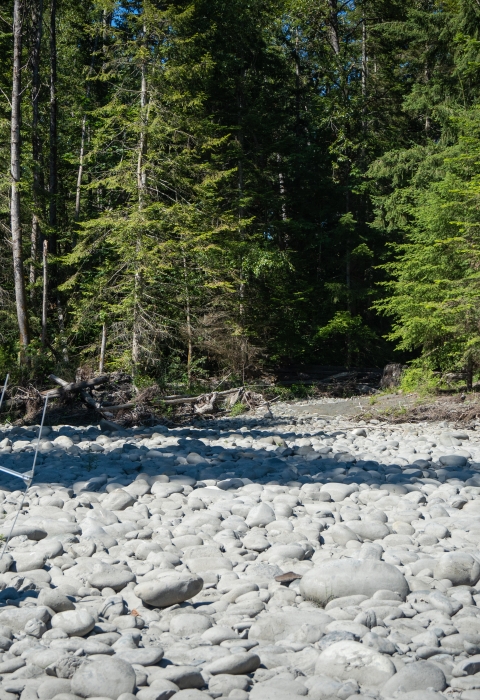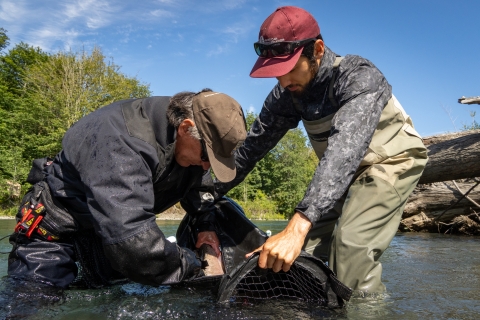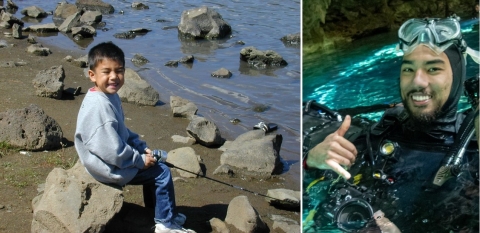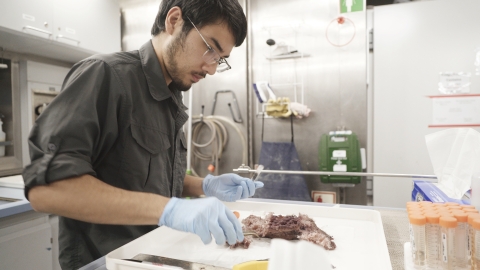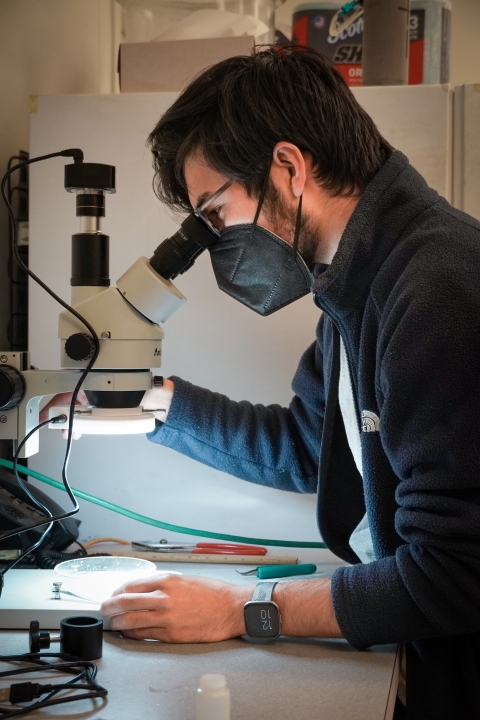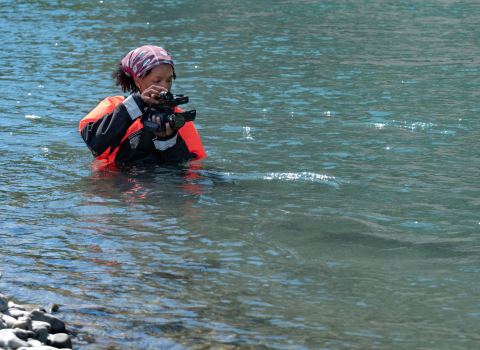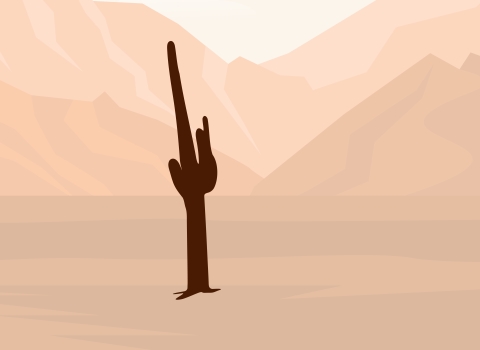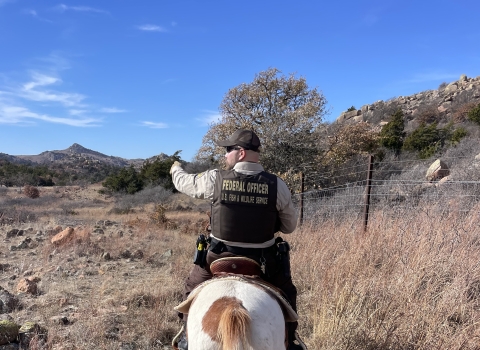A building full of dead fish was my moment of realization. That’s when I knew I wanted to work in fisheries. While taking a class at the University of Hawaiʻi at Mānoa, we toured the Honolulu Fish Auction. Rows of tuna fish the size of a motorcycle lie waiting to be purchased and sent around the world.
As someone enthusiastic about conservation who also enjoys the occasional poke bowl, I realized I wanted to be involved in efforts toward making sure that the fishes we eat are available for future generations. These last few months serving as an intern for the U.S. Fish & Wildlife Service in Western Washington have allowed me to plunge into the waters of fisheries research.
I wasn’t always surrounded by fish and water growing up. I was raised in the desert landscape of Tucson, Arizona. Fortunately, my parents raised me to enjoy the outdoors by camping and spending time on lakes. As I got older, I began scuba diving, which began my long-distance relationship with the ocean. When I began seeing how humans are negatively affecting aquatic life, I decided to attend college in a place surrounded by water. I attended the University of Hawaiʻi, where I graduated from the global environmental science program.
While looking for a research lab to join, my curiosity led me to study the abyssal plains. Stretching across a majority of the ocean floor, the abyssal plains are at depths that surpass the height of Mount Rainier, far below where sunlight can reach. There are plans to mine these areas for valuable metals, which would have devastating environmental impacts. For my research project, I studied the scavenger fish that swim across this region, and also had the opportunity to live at sea for a month helping with deep-sea coral research.
Outside of school, I began fishing with friends around Oahu, even catching smallmouth bass in the streams running through campus. Being surrounded by the Hawaiian culture, I learned about the concept of malama ʻaina, to take care of that which nourishes you. My education combined with this perspective encouraged me to think from an interdisciplinary lens, and strengthened my desire to conserve the aquatic habitats we depend on.
Following graduation, I got into the INFISH! program hosted by the National Oceanic Atmospheric Agency (NOAA). During that virtual internship, I had the privilege of working with NOAA administration on the social side of fisheries by looking at diversity and inclusion efforts in the fisheries workforce. After seeing the administrative side of fisheries management, I wanted my next job to include hands-on experience.
I’ve had a blast serving at the U.S. Fish and Wildlife Service, and I finally get to work in the field handling fish! One project at Lake Washington in Seattle aims to determine if and how much non-native fish such as smallmouth bass and yellow perch feed on juvenile salmon. Collecting diet samples from these fish is like unwrapping a gift, but the box is the fish and the fish’s last meal is the present. Every fish has a surprise inside! Then in the lab, I’ve been using a microscope to identify exactly what the fish are eating.
On the Dungeness River, I assisted with efforts to study and track threatened bull trout populations. I have also learned new skills such as net building, swift water safety, and how to surgically install a tracking tag in a fish.
In addition to the scientific opportunities, I am excited to use my photography skills to help connect the public to fisheries research.
From my desert upbringing to deep-sea exploration, I’m stoked to be immersed in freshwater research. The coming months will be packed with exciting projects and collaborations with various fisheries partners, from catching and tracking juvenile coho to large adult Chinook salmon. Through diverse experiences I am seeing possibilities for different career paths, making new connections, and constantly enjoying the beauty of the Pacific Northwest.
Editor’s note: Eric Klingberg is a fisheries field intern serving at the Western Washington Fish & Wildlife Conservation Office of the U.S. Fish & Wildlife Service. This internship is through a partnership with the American Conservation Experience.
